Benin
President Patrice Talon's camp won the majority of seats in parliament, the country's Constitutional Court said on Thursday, after a vote marking the return of the opposition after a four-year absence.
Sunday's election, which took place peacefully, served as a key test for this small West African country, chaired since 2016 by Patrice Talon.
This wealthy businessman has promoted the economic development of Benin but his detractors accuse him of having set back democracy, his main opponents have been either imprisoned or forced into exile.
This is the first time that the opposition has taken part in the elections since Mr. Talon came to power.
The presidential parties, the Republican Bloc (BR) and the Progressive Union for Renewal (UP-R) won 81 of the 109 seats in parliament, said Razaki Amouda Issifou, president of the Constitutional Court.
The main opposition party The Democrats for its part obtained 28 deputies at the end of the election which took place on Sunday with a participation rate of 37.79%.
Seven political parties - including three opposition allies - were allowed to take part in the ballot in this country once seen as a model of democracy.
Only political parties obtaining more than 10% of the votes can obtain seats in Parliament, according to a proportional system.
Earlier on Thursday, Democrats party leader Eric Houndete dismissed the provisional results, citing ballot stuffing, rigging and "blatant" vote-buying by the two main pro-government parties, but failed to provide evidence immediately.
"The Democratic Party rejects these results, which do not reflect the will of the people to make us the leading political force in the country," Mr Houndete had already declared.
The results can be contested for a period of 10 days after the official announcement of the results.
Return of the opposition
This election also marked the return of the opposition to Parliament after four years of absence, because it had not been able to participate in the previous legislative elections due to a tightening of the voting rules by the government.
An observation mission from the Economic Community of West African States (ECOWAS) ruled that Sunday's ballot had taken place peacefully and in accordance with the rules in force.
The last legislative elections organized in 2019 were marked by deadly violence, record abstention (more than 70%) and a total shutdown of the internet, extremely rare events in Benin.
The return to Parliament is important for the opposition in the run-up to the 2026 presidential election, where candidates will have to be supported by parliamentarians to be registered.
Parliament also plays a role in the composition of the Constitutional Court, which oversees decisions on electoral disputes. His term ends this year and four new judges are to be appointed by MPs and three will be chosen by the president.
The Democrats party has said it will seek to pass an amnesty law in parliament to secure the release of its imprisoned members and allow the return of exiles.
Former opposition leader Reckya Madougou was sentenced in 2021 to twenty years in prison for "terrorism".
Joël Aïvo, another opposition figure, was sentenced the same year to ten years in prison, notably for "conspiracy against the authority of the State" and "money laundering".
Both were tried by a special court, the Court for the Suppression of Economic Crimes and Terrorism (Criet).
Critics of this jurisdiction, set up by the government in 2016, have been used to repress its opponents.
Sunday's legislative elections took place amid rising jihadist violence near the northern border with Burkina Faso and Niger, as well as in other Gulf of Guinea countries (Ghana, Togo, Côte d'Ivoire ).



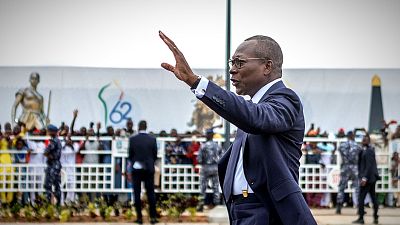

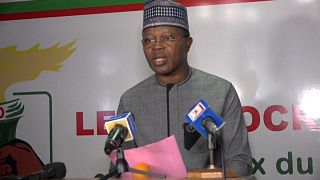

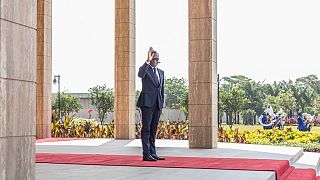



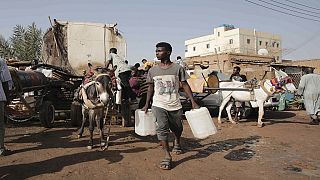

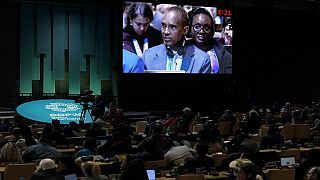
Go to video
France: Beninese activist Kemi Seba freed
02:09
Niger considers routing oil through Chad after Benin dispute
00:56
From oil to arrests: Niger-Benin row escalates
11:10
ECOWAS bloc under growing pressure [Business Africa]
00:51
Niger says Benin's blockade of its oil exports violates trade agreements
01:01
Niger-Benin pipeline: Diplomatic tensions threaten oil exports